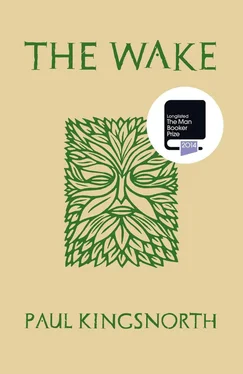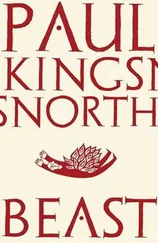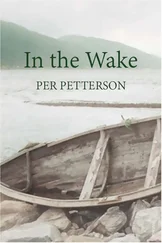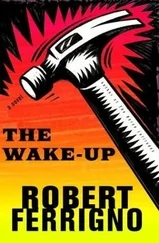LEAC — onion
LESCH — reeds
LITHA — May and June
MELU — flour
MICEL — much
NEBB — face
NIGHTGENGA — demon of the night (lit. ‘night-
traveller’)
NITHING — outcast, villain
OXGANG — measurement of land, equivalent to
around
20
acres, said to be the amount a single ox could plough in a season
PETERSILIE — parsley
SCEOMU — shame
SCOPMAN — similar to Gleoman, travelling news-
bringer, storyteller. Also shortened to ‘scop’
SCRAMASAX — dagger
SCUCCA — demon
SENEP — mustard
SIGE — victory
SIGIL — brooch
SLEGE — slaughter
SOCMAN — free tenant farmer. Sokemen were found
only in the eastern counties of the Danelaw. They owed alleigance to the king rather than the thegn, owned their land, and seem to have been a high class of independent landed farmer
SOLMONTH — January
STOCC — trunk
STRAEL — arrow
STUNT — stupid or stubborn person
SWAMM — mushroom
SWEALWE — swallow
THEGN — lord, squire
THRALL — slave
THRIMILCI — April (when cows were milked three
times)
TREEN — woodenware
WAPENTAC — Wapentake, the Danelaw’s equivalent of
a shire court, the basis of local justice in England
WEALSC — the Old English word for both foreigner and
slave was applied to the pre-English (‘Bryttisc’) population. It became the modern word ‘Welsh’
WELIG — willow
WEODMONTH — July (month of weeds)
WERGILD — blood price. A monetary measure of a
life, the wergild was a price put on someone’s head. If you killed them, you had to pay it. A king cost a lot more than a cottar
WEROD — war band
WIHT — living being, creature, animal
WITAN — gathering of the highest men in the land –
earls, powerful thegns and bishops. Before the Normans introduced automatic hereditary monarchy, English kings were elected by the Witan
WITHIG — wreath
WYRD — fate, destiny
WYRMFLEOGE — dragonfly
WYRT — herb

What we now call ‘Old English’ was the language of the English people until the invasion of 1066, when it rapidly began to mutate with the arrival of Norman French, the language of the new ruling class. This novel is not written in Old English — that would be unreadable to anyone except scholars. It is written instead in what might be called a shadow tongue — a pseudo-language intended to convey the feeling of the old language by combining some of its vocabulary and syntax with the English we speak today.
The language of this novel evolved as I wrote it over a period of three years, often seeming to do so beyond my control. Eventually, in an attempt to prevent things getting entirely out of hand, I tried to hem it in with some rules.
The first and most important rule was that I wanted to use only words which originated in Old English. The vast majority of the vocabulary of this novel consists of words that, in one form or another, existed in English 1000 years ago. The exceptions are cases where words did not exist for what I wanted to say, or where those that did were so obscure today, or hard to pronounce or read, that they would have detracted excessively from the flow of the tale.
The second rule was that I did not use letters which did not exist in Old English. The OE alphabet was more limited than ours. There was, for example, no letter ‘k’ — it is replaced by ‘c’, which is always pronounced like the modern ‘k’, never like the modern ‘s’. There was no ‘v’ either; ‘f’ takes its place in words like ‘seofon’ (seven). ‘J’ and ‘q’ were similarly absent.
The matter of spelling was more complicated. I wanted to render as many OE pronunciations as I could on the page, rather than translating them into their modern equivalents. So the OE words daeg (day), for example, or deorc (dark) — though pronounced in much the same way as they are in modern English — are offered up with their OE spellings intact. This is a rule that I found I had to break more often than I wanted to — if I had stuck to it with every word, the novel would have been ten times harder to read. I had to use my judgement as to when to use OE spellings and when to modernise them, and if so by how much.
Choosing OE, or pseudo-OE, forms for the novel’s vocabulary means that the reader has to initially wrestle with OE pronunciation. This can be tricky to compute at first, but once grasped it becomes, I hope, second nature. So ‘sc’, for example, is pronounced ‘sh’ — as in biscop. ‘Cg’ makes a ‘dg’ sound in words like bricg (bridge). ‘G’ can be pronounced both as a hard letter, as in mergen (morning) or as a soft equivalent of ‘y’ when it appears in words like daeg. ‘Hw’ sounds like ‘w’ in words like hwit (white).
Finally, it’s worth stressing the catholicism of my approach to the language, old and new. To achieve the sound and look I wanted on the page I have combined Old English words with modern vocabulary, mutated and hammered the shape of OE words and word endings to suit my purpose, and been wanton in combining the Wessex dialect with that of Mercia, Anglia and Northumberland — and dropping in a smattering of Old Norse when it seemed to work. The syntax used is mine, its structure often driven by the limitations placed on me by the available vocabulary.
There was one final rule I set myself, and it was this: all of the previous rules could be overridden, if necessary, by a meta-rule, which functioned as a kind of literary thegn: do what the novel needs you to do. This, in the end, was a matter of instinct, which means that I have no-one to blame for the results but myself.
Why bother with all this? Why make life harder for myself and for the reader? There are two answers to this question. The first is that I simply don’t get on with historical novels written in contemporary language. The way we speak is specific to our time and place. Our assumptions, our politics, our worldview, our attitudes — all are implicit in our words, and what we do with them. To put 21st-century sentences into the mouths of eleventh century characters would be the equivalent of giving them iPads and cappuccinos: just wrong.
Which leads on to the second reason for playing with language in this way. The early English did not see the world as we do, and their language reflects this. They spoke their truth, as we speak ours. I wanted to be able to convey, not only in my descriptions of events and places but through the words of the characters, the sheer alien-ness of Old England.
The early English created the nation we now live in. They are, in a very real sense, the ancestors of all of us living in England today, wherever our actual ancestors come from. Despite this link, though, their world was distant from ours; not only in time but in values, understanding, mythopoesis. Language seemed the best way to convey this.
This novel is written in a tongue which no one has ever spoken, but which is intended to project a ghost image of the speech patterns of a long-dead land: a place at once alien and familiar. Another world, the foundation of our own.

The Norman invasion and occupation of England was probably the most catastrophic single event in this nation’s history. It brought slaughter, famine, scorched-earth warfare, slavery and widespread land confiscation to the English population, along with a new ruling class who had, in many cases, little but contempt for their new subjects. It wasn’t until 1399, over three centuries after Duke Guillaume of Normandy launched his successful invasion, that England again had a king who spoke English as his first language.
Читать дальше














